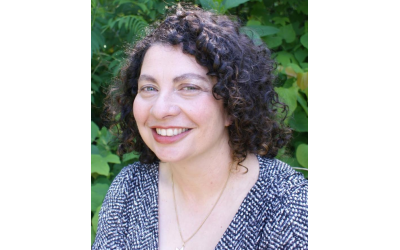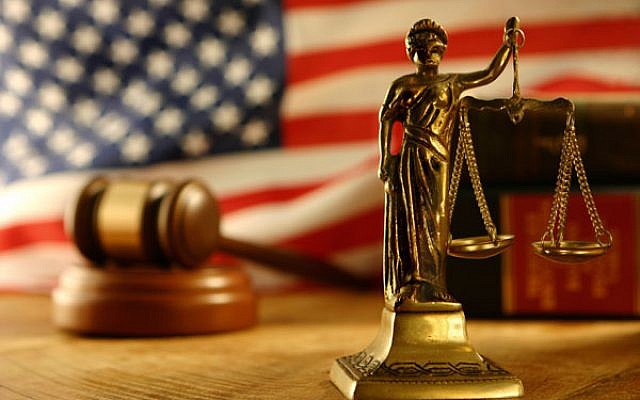Jewish Law vs. Judicial Law
The way in which Jewish law is interpreted depends on which denomination you consult, said Rabbi Joshua Heller, an expert on Jewish law and practice.
You accidentally knock over and break a jar of spaghetti sauce in an American supermarket. Jewish law says you should do the right thing and pay for it. But, of course, no one does that in modern America because the law of the land takes precedence. We might alert a store associate to the mess so it can be cleaned, and apologize. But we generally aren’t compelled to pay for the damage.
Doing the right thing. In American judicial law, there’s no obligation to compel one to do it.
But Jewish law does require such involvement, such as when someone needs help, Michael Broyde, an authority on Jewish law, said in a phone interview from Israel. He’s on sabbatical from Emory University School of Law since August, and soon to begin teaching about Jewish law as a Fulbright Senior Fellow at Hebrew University in Jerusalem.
The difference between Jewish law and American law largely comes down to ethics, obligations and punishment, according to the rabbis and Jewish law experts consulted for this story.
When it comes to Jewish law, enforcement isn’t even the end-game. Education is, said Broyde, an ordained rabbi who was a member of the Beth Din of America – the largest Jewish law court in the country – and once served as its director. “Many aspects of the law are not enforced. They are designed to remind us how to conduct ourselves.”

In the case of being an active bystander, Broyde explained in a recent essay about the Jewish obligation: “Each exhortation of the Jewish tradition needs to be looked at individually to determine whether the Jewish legal system is intending to provide court-ordered sanctions for a violation, or secondary enforcement, or was making a purely religious claim that even it did not intend to be enforceable.”
Still, Jewish law’s demand for “active intervention – in some cases even to the bystander’s own small risk or detriment … but certainly with time and money – expresses a distinctive core value of responsibility for one’s neighbors’ safety and well-being,” Broyde wrote.
Despite the Good Samaritan Law, which exempts liability when becoming an involved bystander, “the common law legal tradition denies the central obligation of anyone to help anyone else, even when the help is easy to provide, without any risk to the provider and of enormous benefit to the recipient. Grounded in a historically libertarian view of law and society, and predicated on the idea that the most the government can do is instruct its citizens what not to do rather than what to do, the law simply never mandated that people help other people who are in distress.”
Caring for others may not be an American law, but it’s certainly a Jewish one, said Broyde, who was also founding rabbi of Young Israel of Toco Hills.
“For me Judaism is way of life in terms of ritual and ethical practice,” said Rabbi Joshua Heller, senior rabbi of Conservative Congregation B’nai Torah. “Jewish law guides me how I treat other people and my relationship with G-d as well.”

But how Jewish law is interpreted depends on which denomination you consult, said Heller, considered an expert on Jewish law and practice. He is a member of the Committee on Jewish Law and Standards of the Rabbinical Assembly and serves on its rights and rituals subcommittee. “The Conservative approach to Jewish law is based on a balance between precedent and adaptation.”
While Conservative Jews see the law as binding, they believe implementation can be based on interpretation, he said. For example, certain prayers that require a minyan can include women in the 10-person quorum. And while he and other
Conservative rabbis may agree to that stipulation, he understands his more religious grandfather, who was also a rabbi, might not have approved any change in the traditions of 2,000 years ago.
Jewish law is generally divided into four areas, Broyde explained: Daily law, including Sabbath and holidays; family law, including marriage, divorce and child custody; commercial law; and ritual law, including keeping kosher and respecting your parents.
One case that might be referred to a rabbinic court or beit din, he said, is if a rabbi has a dispute with his congregation over the parameters of his job. Or an organization that believes it received a donation of stolen funds might seek the advice of a Jewish court, Heller said.
While enforcement can’t be ensured, there’s an understanding that the ruling of a rabbinic court is binding, he said. “Sometimes people want to do the right thing even if no one is forcing them.”

Reform Rabbi Ruth Abusch-Magder often sits on a beit din for conversions. When she was in Guatemala five years ago, she helped conduct 35 conversions in two years. “There was a very extensive Jewish knowledge test.”
In general, the main rabbi guiding the candidate’s conversion invites two colleagues to help decide the case, said Abusch-Magder, who is rabbi-in-residence of Be’chol Lashon (In Every Tongue), an organization recognizing racial and ethnic diversity in the Jewish community.
Conversion involves a Jewish education, demonstrating an understanding and commitment to the religion and a vow to only believe in one G-d, she said. The candidate also offers a statement of belief, what they know about Judaism and why they want to become Jewish.
She only recalls once in the 10 years she’s been a Reform rabbi having to turn away a conversion candidate for not being ready.
Different denominations have their own understanding of what it takes to become a convert, she conceded. In Reform circles, most males are required to be circumcised, or if they already are, the hatafat dam brit involves a symbolic drawing of a drop of blood. The candidate also is required to be spiritually cleansed in the mikveh.
Abusch-Magder believes there’s something very compelling about someone choosing to convert to Judaism. It’s not easy being Jewish, but there’s a sense of history and family and community that resonates with someone who is considering conversion, she said. “It’s an extraordinarily powerful thing to witness.”




comments